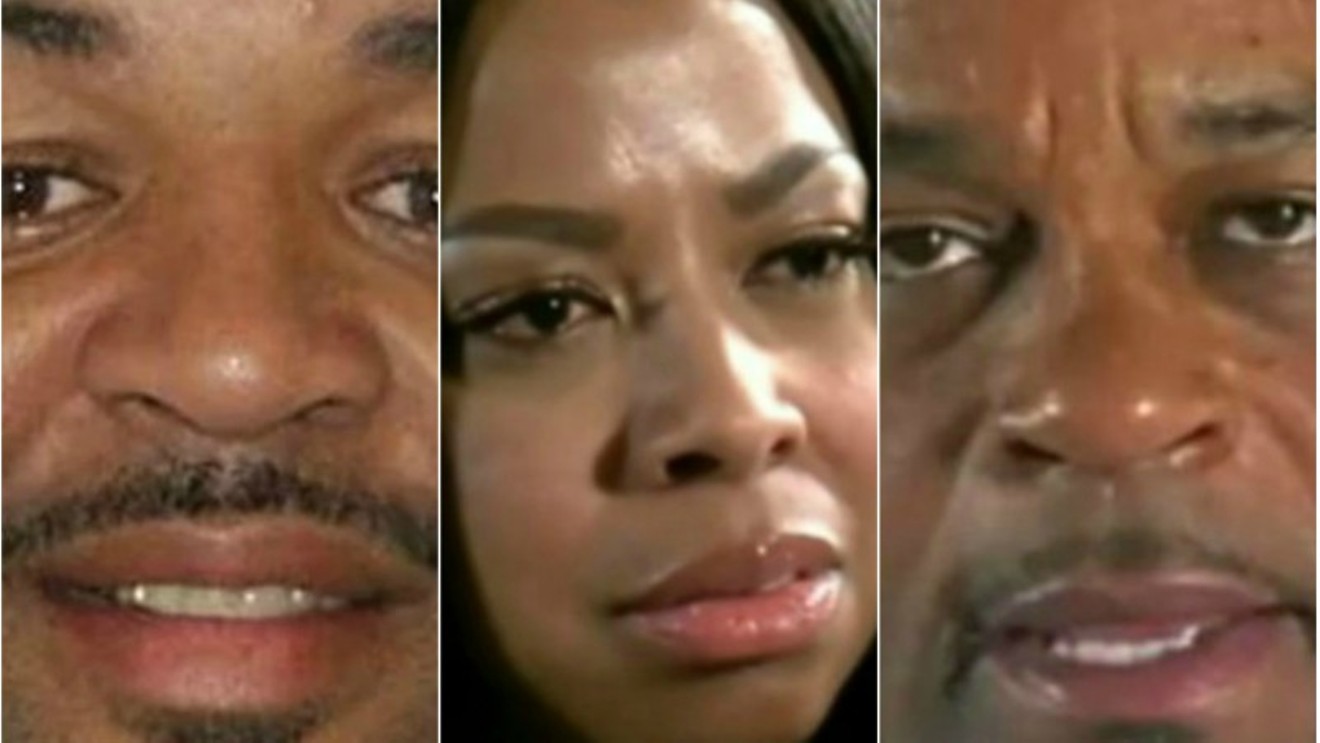In an email to Westword, Sulton doesn't allege that Hancock and the City of Denver breached the 2016 settlement in ways that might lead to future litigation. However, he provides correspondence with attorney Thomas Rice, who represented Hancock and the City in that case, that references the pact's "non-disparagement provision" and "the agreement not to disseminate," and suggests that the mayor's remarks "publicly disparaged" McDonald.
(Neither Rice nor representatives of the mayor's office have responded to Westword's request for comments on this topic. If and when they get back to us, we'll update this post.)
The aforementioned apology video was released after Leslie Branch-Wise told Denver7's Tony Kovaleski about unwanted, sexually themed texts sent to her by Hancock. One shared with viewers found Hancock asking if she'd ever taken a pole-dancing class before adding, "Be careful! I’m curious;)!"
At the outset of the video, Hancock says, "Six years ago, Denver police detective Leslie Branch-Wise was a member of my security team. In May of 2012, she called me. She let me know she had requested a transfer out of the unit because a member of my staff had sexually harassed her. I listened, and what I heard greatly disturbed me. I apologized that this had happened. We reviewed the matter and took immediate action. The employee was fired within days."
Here's the video:
The staffer in question — McDonald — was dismissed four days after Hancock says he was informed by Branch-Wise that she had asked to leave the security team because of his behavior. A year later, in 2013, Branch-Wise received a settlement of her own, albeit one less than half the size McDonald would ultimately collect: $75,000.
After the video came online, Sulton reached out to Rice. A partner in Denver-based Senter Goldfarb & Rice, LLC, Rice responded with the following email:
We disagree with your suggestion that any of the statements made by Mayor Hancock yesterday either publicly disparaged Mr. McDonald, or served to disseminate "factual matters" that were "developed in connection with the lawsuit." Please advise me as to both content of the specific statements by the Mayor that you claim violated the settlement agreement and the particular provision of the agreement that you assert was violated by such statements.Rice subsequently emailed Sulton again, after apparently not being satisfied with the latter's reply:
Please also know that it is our view that neither the non-disparagement provision nor the agreement to not disseminate have been breached. Your statement that such provisions are now null and void is false, and any actions taken by you or your client based on that mistaken premise may result in the City pursuing its own remedies to enforce the agreement....
I have asked for your view of which statements made by the Mayor violate the agreement. Generalities don’t answer that question. Our contract does not prohibit any comment on the case, nor does it prevent the Mayor from fair comment on its effect on him. What it does prohibit is disparagement or dissemination of facts uniquely developed in connection with the lawsuit. If you believe the Mayor has breached either of these prohibitions, I invite your specification of such. Again, mere generalities do not advance the discussion.Sulton offers more details in his communications with Westword.
"In 2012, Mayor Hancock caused false statements about Mr. McDonald to be published," he maintains. "Mr. McDonald’s then-attorney tried to mitigate the damages caused by publicly disputing the false statements. That did not alleviate the damages. So Mr. McDonald sued and the taxpayers paid Mr. McDonald $200,000."
He adds that "settlements, despite common clauses to the contrary, are acknowledgments of wrongdoing and the amount of a settlement is a measure of the wrongdoing. $200,000 is an extraordinary sum for a municipality to pay for an employment matter. A review of Denver’s employment settlements from 2004 shows that the settlement in Mr. McDonald’s case is one of the largest employment settlements in Denver’s history."
With the video released February 27, Sulton continues, "Mayor Hancock caused the same false statements to be published about Mr. McDonald. In discussing the damages caused by Mayor Hancock with the mayor’s attorney, Thomas Rice, Mr. Rice stated that the agreement did not prohibit comments about the case. While I disagree with that, I tried to mitigate the damages by providing the theory of the case that I would have presented at trial. (Mr. Rice did not say that I could produce discovery materials from the case or talk about witness statements or the like.) That has not worked to alleviate the damages."
His conclusion: "That Mayor Hancock and Denver officials approved of the settlement shows that the mayor’s statements are false."
Click to read the lawsuit mentioned by Sulton, Wayne McDonald v. Leslie Branch-Wise et al.












